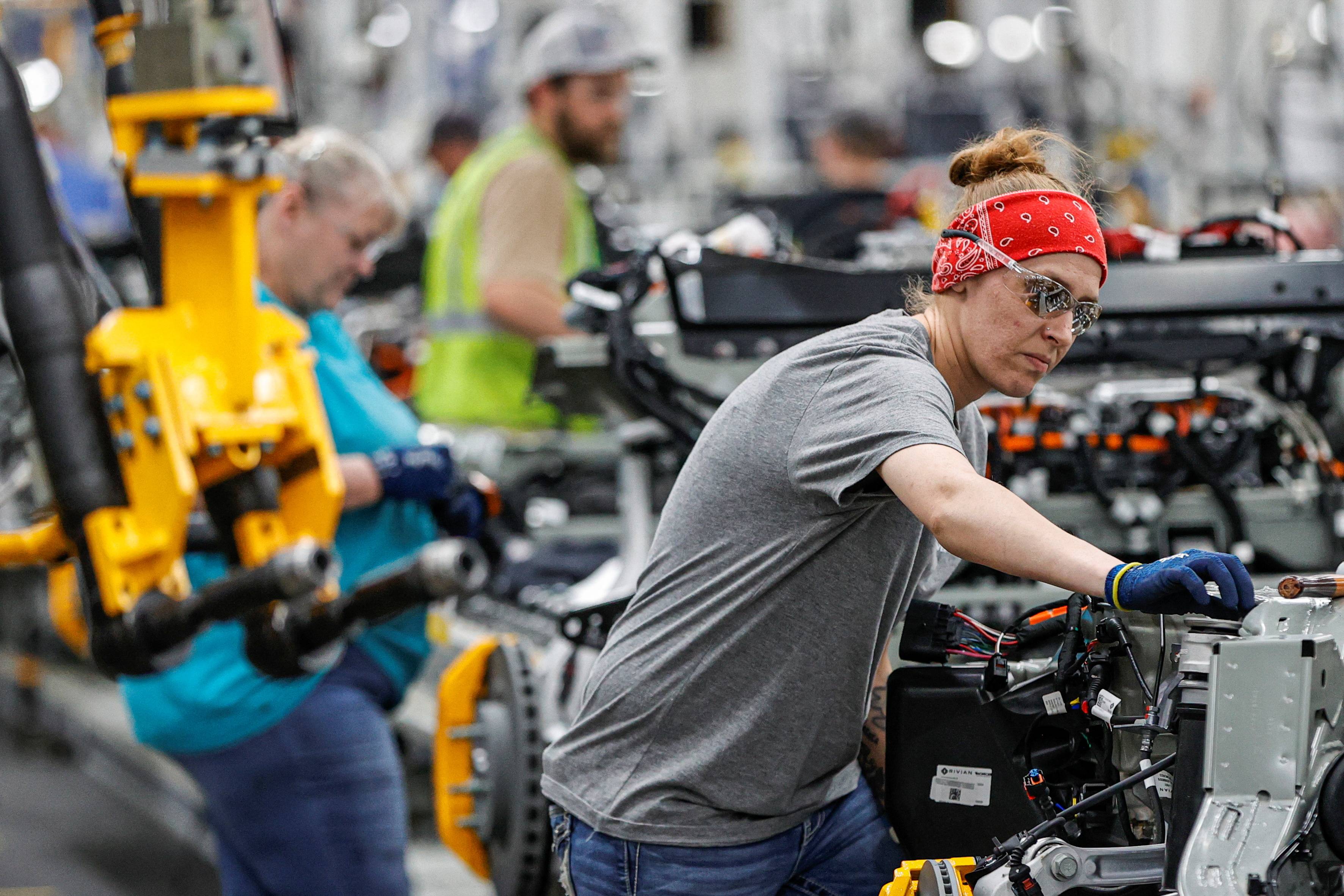
Some of the most rewarding careers in the globe are logistics jobs. There are many career opportunities available, including warehouse and supply chain management as well as transportation and logistics operations. While you will find employment opportunities in some of America's most dynamic and interesting neighborhoods like Uptown or West Loop, there are also opportunities available in the suburban areas. A Chicago logistics job could be the ideal fit for you whether you are looking for a job at entry level or to further your career.
There are a number of companies in Chicago that are currently hiring. Echo Global Logistics is a top provider of technology-enabled BPO services. Clients can save significant money on transportation with the company's web-based technology. Its dedicated service teams work hard to ensure clients' satisfaction.

In addition to its strong procurement power, Echo Global Logistics has a robust suite of service offerings and offers clients access to industry-leading transportation and logistics services. One of Echo Global Logistics' clients is a multi-national warehouse located in Chicago's Bedford Park. The warehouse can use its proprietary web-based technology to manage shipments immediately, eliminating long term imbalances and improving customer experience.
Some of the nation's most distinguished universities are located in Chicago. Northwestern University, University of Illinois at Chicago, University of Wisconsin Madison, and University of Wisconsin–Madison are among the most prominent schools in the state. In addition to the excellent academic programs, there are many cultural and entertainment districts in the city. It is possible to see many of city's most iconic landmarks from the Magnificent Mile. You can also find some of the best restaurants in the country in the Loop, West Loop, or Gold Coast neighborhoods.
It is important to have a broad education. Even though some people enter logistics without a degree, it's important to have a degree that is relevant to your job. You can get a degree that focuses on supply chain management, business, entrepreneurship, accounting or even accounting. You may need a degree in these areas depending on what company you work for to secure a high-paying job. If you don't want to commit to a full-time MBA program there are many online degrees that offer master's and bachelor's degree options.
To learn more about a career as a logistics professional, visit the company's website. It's important to review the company's policies, procedures, as well as its rewards. It will pay off. Your career will be more enjoyable and you'll be more successful. In a safe environment, you'll feel secure.

You can enjoy some of most highly sought after jobs in the area if you work hard and are lucky. You can't necessarily expect to reach the top of the ladder in your first year. There may be business or location requirements that affect your job, so you should plan ahead.
FAQ
What is the role of a production manager?
Production planners ensure that all project aspects are completed on time, within budget and within the scope. They also ensure the quality of the product and service meets the client's requirements.
What are the logistics products?
Logistics involves the transportation of goods from point A and point B.
They encompass all aspects transport, including packaging and loading, transporting, storage, unloading.
Logisticians ensure that the right product reaches the right place at the right time and under safe conditions. They provide information on demand forecasts as well stock levels, production schedules and availability of raw material.
They can also track shipments in transit and monitor quality standards.
What is the role of a logistics manager
Logistics managers are responsible for ensuring that all goods arrive in perfect condition and on time. This is achieved by using their knowledge and experience with the products of the company. He/she should make sure that enough stock is on hand to meet the demands.
Are there any Manufacturing Processes that we should know before we can learn about Logistics?
No. No. Understanding the manufacturing process will allow you to better understand logistics.
Statistics
- You can multiply the result by 100 to get the total percent of monthly overhead. (investopedia.com)
- Job #1 is delivering the ordered product according to specifications: color, size, brand, and quantity. (netsuite.com)
- In 2021, an estimated 12.1 million Americans work in the manufacturing sector.6 (investopedia.com)
- [54][55] These are the top 50 countries by the total value of manufacturing output in US dollars for its noted year according to World Bank.[56] (en.wikipedia.org)
- In the United States, for example, manufacturing makes up 15% of the economic output. (twi-global.com)
External Links
How To
How to Use Lean Manufacturing in the Production of Goods
Lean manufacturing (or lean manufacturing) is a style of management that aims to increase efficiency, reduce waste and improve performance through continuous improvement. It was created in Japan by Taiichi Ohno during the 1970s and 80s. He received the Toyota Production System award (TPS), from Kanji Toyoda, founder of TPS. Michael L. Watkins published the original book on lean manufacturing, "The Machine That Changed the World," in 1990.
Lean manufacturing can be described as a set or principles that are used to improve quality, speed and cost of products or services. It emphasizes eliminating waste and defects throughout the value stream. Just-in-time (JIT), zero defect (TPM), and 5S are all examples of lean manufacturing. Lean manufacturing is about eliminating activities that do not add value, such as inspection, rework, and waiting.
In addition to improving product quality and reducing costs, lean manufacturing helps companies achieve their goals faster and reduces employee turnover. Lean manufacturing can be used to manage all aspects of the value chain. Customers, suppliers, distributors, retailers and employees are all included. Lean manufacturing is widely used in many industries. Toyota's philosophy is a great example of this. It has helped to create success in automobiles as well electronics, appliances and healthcare.
Five fundamental principles underlie lean manufacturing.
-
Define Value: Identify the social value of your business and what sets you apart.
-
Reduce Waste – Eliminate all activities that don't add value throughout the supply chain.
-
Create Flow – Ensure that work flows smoothly throughout the process.
-
Standardize and simplify – Make processes as repeatable and consistent as possible.
-
Develop Relationships: Establish personal relationships both with internal and external stakeholders.
Lean manufacturing is not a new concept, but it has been gaining popularity over the last few years due to a renewed interest in the economy following the global financial crisis of 2008. To increase their competitiveness, many businesses have turned to lean manufacturing. Some economists even believe that lean manufacturing can be a key factor in economic recovery.
Lean manufacturing, which has many benefits, is now a standard practice in the automotive industry. These include improved customer satisfaction, reduced inventory levels, lower operating costs, increased productivity, and better overall safety.
Any aspect of an enterprise can benefit from Lean manufacturing. Because it makes sure that all value chains are efficient and effectively managed, Lean Manufacturing is particularly helpful for organizations.
There are three main types in lean manufacturing
-
Just-in-Time Manufacturing: Also known as "pull systems", this type of lean manufacturing uses just-in-time manufacturing (JIT). JIT is a process in which components can be assembled at the point they are needed, instead of being made ahead of time. This approach is designed to reduce lead times and increase the availability of components. It also reduces inventory.
-
Zero Defects Manufacturing - ZDM: ZDM focuses its efforts on making sure that no defective units leave a manufacturing facility. It is better to repair a part than have it removed from the production line if it needs to be fixed. This applies to finished goods that may require minor repairs before shipment.
-
Continuous Improvement: Continuous Improvement aims to improve efficiency by continually identifying problems and making adjustments to eliminate or minimize waste. Continuous improvement involves continuous improvement of processes and people as well as tools.